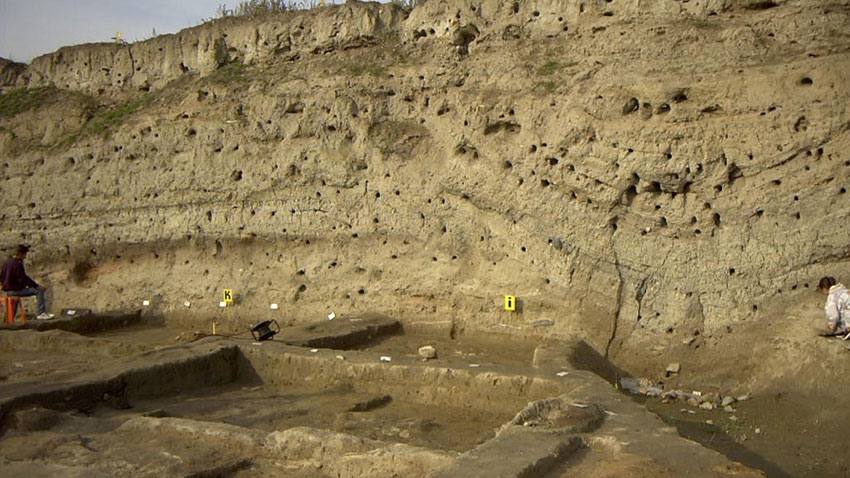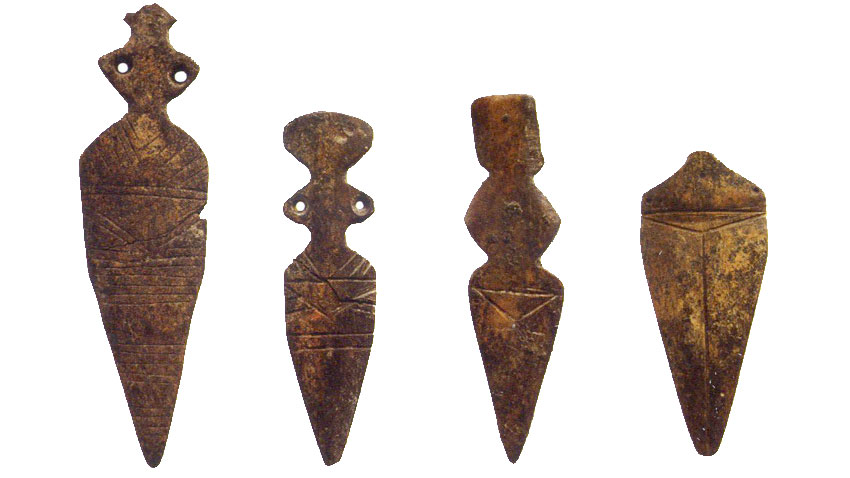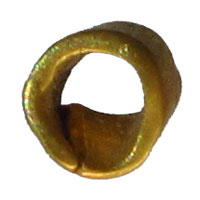Yunatsite /Heroes/, or the Flat Mound, situated 8 km away from the town of Pazardjik has always been one of the most interesting and long researched archaeological sites in Bulgaria. The initial excavations took place back in 1939 and were carried out by archeologist Vasil Mikov. However, everything was postponed due to WWII, but later on, after their renewal excavations have continued for 40 years now. Here is what archaeologist Dr. Yavor Boyadzhiev says on the long-inhabited settlement:

“At least for the time being we are sure that the place was initially inhabited somewhere around 5,000 years BC, with the earliest layers of the Stone-Copper Age. There are nine settlements of this epoch. Then living on the spot was interrupted for some 1,000 years. Later on representatives of the Early Bronze Age inhabited it again. 16 settlements of that period have been researched. Then we have traces from the Thracian epoch, followed by the Roman one and next we see a medieval necropolis. So, in the period 6,000 years BC – 1,300-1,400 AD the site was inhabited and a long chain of settlements that developed come to prove that. This thing is really precious, as there are few sites of that kind on the Continent – and they are all concentrated on the Balkan Peninsula, across its eastern half, where Bulgaria can be found as well.”

Thus the Yunatsite can frame the pace of civilization over the millennia, also interruption of living and the arrival of the new population which began to build up and further develop the place. According to Yavor Boyadzhiev, this is the largest complex from the Stone Copper Age revealed so far. It has a large settlement, formed as a citadel later on – a fortified acropolis. It became the prototype of the towns that were later to be erected on the spot.

“In terms of areal and organization it can be referred to what was already accepted as a town in Mesopotamia, the Sumerian culture and this is the opinion of foreign researchers as well – Americans, Russians, Englishmen, Frenchmen etc. I.e. its characteristics show that this is the earliest settlement in Europe, covering the criteria for a town. It emerged some 2,000 years earlier than similar settlements in Mesopotamia and Egypt. That is how we show a really early culture, well developed  for which we have many proofs. This is the ceramic material that is unfortunately very fragmented and broken. We don’t have whole vessels here. However, the artifacts discovered reveal an exceptional technical level in terms of both technology and ornamentation; it shows real artistic taste…”
for which we have many proofs. This is the ceramic material that is unfortunately very fragmented and broken. We don’t have whole vessels here. However, the artifacts discovered reveal an exceptional technical level in terms of both technology and ornamentation; it shows real artistic taste…”
We can only add that the excavations found out a gold bead – a surprisingly early appearance of processed gold over the mid-Chalcolithic period. Yavor Boyadjiev states that the bead was created around 4,600 years BC, but it might turn out that it is even older. “For the moment I point at the latest date possible, so that we can be sure – I don’t want anybody to say afterwards that we have pushed our luck,” he says. The additional research might give the final answer to this question. The gold itself cannot be dated, but its precise age can be probably found via deduction – by inspecting the premise where it has been found and viewing at the respective earth layer, the archaeologist points out.
English version: Zhivko Stanchev
The introduction of the subject "Virtues and Religions" in schools is not aimed at indoctrinating children, but at informing and educating them. Faith is something personal, Patriarch Daniil said in an interview for public service TV BNT. “Faith is..
On the second day after Easter begins Bright Week. It is so called because of the light that Christ's Resurrection brings to the world. According to Orthodox tradition, it is a time when the Holy Apostles and the Virgin Mary are glorified. Bright Week..
Patriarch Daniil celebrated a divine service for the so-called Second Resurrection of Christ in the Sofia-based church of Saint Nedelya. Patriarch Daniil greets Bulgarians with “Christ is Risen” At the festive liturgy, texts from the Gospel..
On 10 May we mark 72 years since the restoration of the Bulgarian Patriarchate, whose existence ended at the end of the 14th century when Bulgaria fell..
A Bulgarian delegation, led by Foreign Minister Georg Georgiev, attended the enthronement of Archimandrite Gavrii as abbot of the Zograf Monastery in..

+359 2 9336 661
